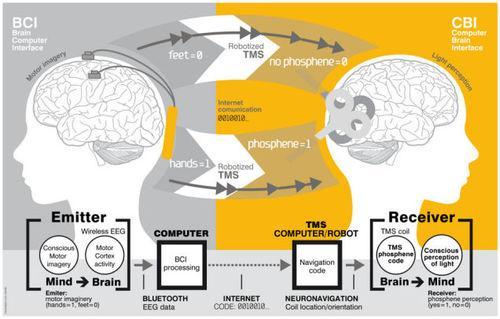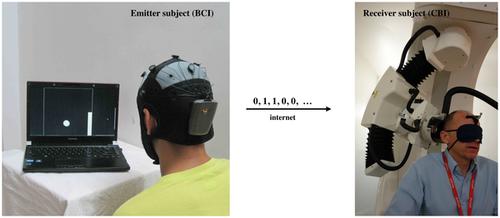
In a world first, a team of researchers has achieved brain-to-brain transmission of information between humans.
The team managed to send messages from India to France — a distance of 5,000 miles — without performing invasive surgery on the test subjects.
There were four participants in the study, aged between 28 and 50.
One was assigned to a
brain-computer interface to transmit the thought, while the three others
were assigned to receive the thought.
The first participant, located in India, was shown words
translated into binary, and had to envision actions for each piece of
information.For example, they could move their hands for a 1 or their legs for a 0.
A technique known as electroencephalogry — which monitors brain signals from the outside — was used to record the thoughts as outgoing messages and send them via the internet.

The report’s
co-author, Alvaro Pascual-Leone, said: “We wanted to find out if one
could communicate directly between two people by reading out the brain
activity from one person and injecting brain activity into the second
person, and do so across great physical distances by leveraging existing
communication pathways.
“One such pathway is, of course, the Internet, so our question
became, ‘Could we develop an experiment that would bypass the talking or
typing part of the Internet and establish direct brain-to-brain
communication between subjects located far away from each other in India
and France?’ ”
The research team was made up of researchers from Harvard University, as well as experts from France and Spain.
